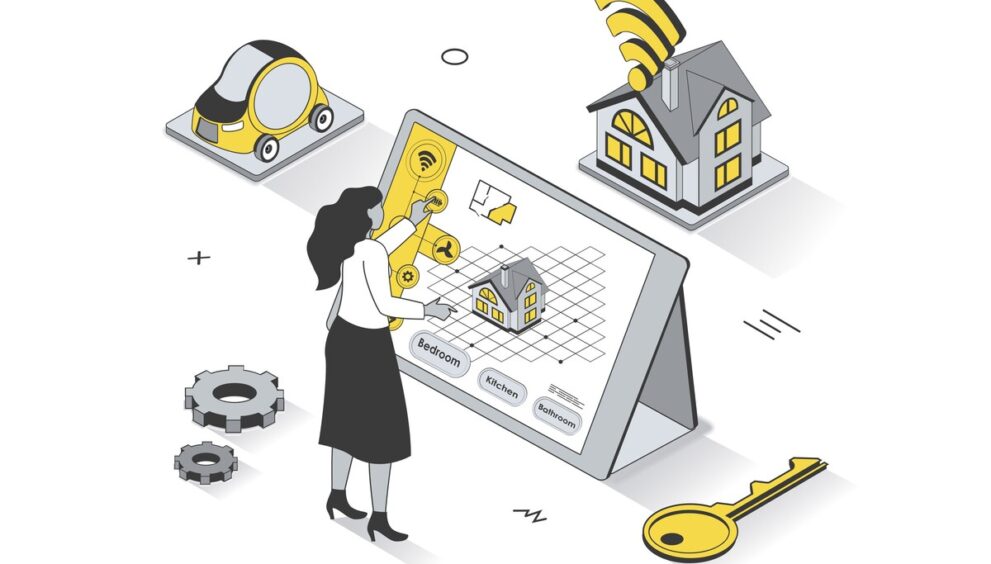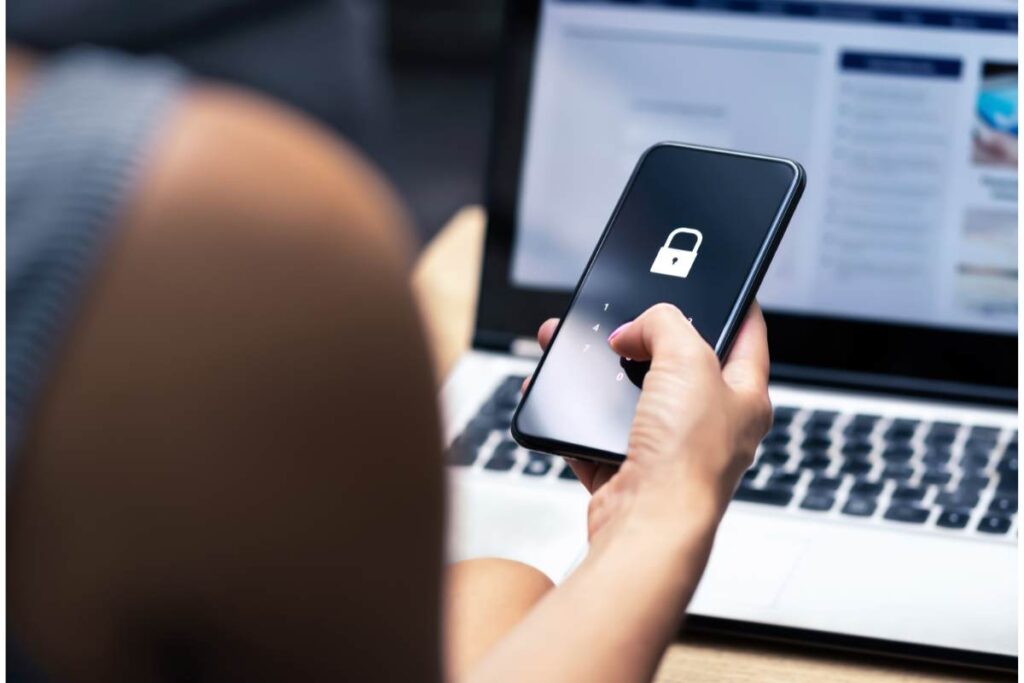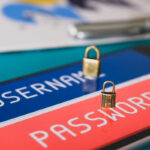Essential Home Cyber Security Tips to Safeguard Your Digital Haven

Keeping your operating system and software up to date is among the most crucial things you can do to keep your computer secure. Although it might seem obvious, how many people need to do it is remarkable.
People’s fear of breaking something is one of the reasons they need to update their software. However, the truth is that your software is less likely to malfunction the more recent it is. And if something does break, there probably is a remedy already accessible.
The inconvenience of updating software is another reason why people don’t do it. However, the reality is that updating your software is typically simpler than dealing with the repercussions of doing nothing.
What effects does not updating your software have, then? Most obviously, you’re more likely to have malware on your computer. It is due to the ongoing development of new exploits for known vulnerabilities by hackers. If your software is outdated, you may be a convenient target for hackers.
You can lose out on crucial security fixes if you don’t update your software, which is another negative effect. That implies your computer may be more open to attack even if you’re not using old software.
What is the final verdict, then? Update your program frequently! It’s among the most effective strategies to safeguard your computer.
Use a Firewall
A firewall is a device created to guard against unauthorized access to your computer. It prevents incoming connections that the user has yet to approve. Hardware or software firewalls are also options. However, most home users will have a software firewall on their computers.
When setting up a firewall, keep the following in mind:
- Verify that the firewall is activated.
- Ensure the firewall’s settings permit inbound connections from trusted sources.
- Ensure that the firewall blocks all incoming connections from unauthorized sources.
- Verify that the firewall is logging all incoming and outgoing traffic.
- Verify that the firewall is set up to deliver notifications when it discovers questionable behavior.
Antivirus and antimalware software should be used.
Antivirus and antimalware programs are necessary to protect your computer from malware. Malware is a category of harmful software that can seriously harm your computer by stealing your data, wiping out your files, or even taking over your machine.
Antivirus software can detect and remove A computer’s infection, which can also defend your machine from future threats. Additionally, antimalware software can assist in repairing any harm that malware has inflicted.
It is crucial to select the best antivirus and antimalware program for you out of the numerous options accessible. While some programs are free, some need payment. Researching the ideal tool for your needs is crucial because some programs are more effective at identifying and eliminating malware than others.
Maintaining your antivirus or antimalware product up to date is crucial once you’ve selected it. Most programs will update themselves automatically, but you should routinely check for updates to ensure you have the most recent security.
Additionally crucial for preventing viruses on your PC are safe computing practices. Be cautious when clicking links in emails or websites, and avoid downloading files from dubious sources. Maintain current security settings on your computer, and think about using a firewall for more security.
You can help keep malware off your computer by keeping these easy tips in mind.
Don’t Click on Links or Attachments in Suspicious Emails
Phishing emails are one of the most typical ways that fraudsters attempt to get your personal information. Phishing is when a criminal sends you an email that appears to be from a trusted source but is a ruse to get you to open an attachment or click on a link that will infect your machine with malware. Your personal information, including passwords, financial information, and even your identity, can then be stolen with this spyware.
You should never click on links or open attachments in emails from individuals or companies you don’t know to safeguard yourself from phishing attacks. Even if an email appears real, it might be a phishing scam. You can always contact the sender to get confirmation that they sent the email if you need clarification on its legitimacy.
It would help if you used antivirus software to secure your computer and be cautious about the emails you open. This software can assist in preventing your computer from opening harmful emails and attachments. Additionally, it’s a good idea to keep your software and operating system updated because these upgrades frequently come with security patches that might shield you from new kinds of assaults.
By adhering to these straightforward measures, you can help defend yourself against phishing attempts and other forms of cybercrime.

Use caution when posting things online.
What you write online can be used against you, as is well known. The issue has gotten so bad that whole businesses have sprung up to gather and analyze online data from individuals. Therefore, you must take care of what you share online to avoid exposing yourself to various issues.
Eight things to be wary of when publishing online are listed below:
- Personal Data: This one should go without saying, but you’d be astonished at how many individuals share their entire name, address, phone number, and other personal data online. Don’t post something online if you wouldn’t put it on a billboard.
- Images: Take caution when posting images online. You cannot take them back once they have left the building. Furthermore, even if you believe you are only sharing them with your pals, they can find their way into the hands of someone you don’t want to see.
- Opinions: Exercise caution when expressing your views online. If you don’t take care, you might insult someone or start a conflict.
- Information about Your Work: If you need to be more careful, you can post information about Your Work that you should be aware of. For instance, you might unintentionally publish a client’s private information.
- Financial Details: Never divulge financial details online. Your social security number, bank account number, and credit card number are all included in this.
- Passwords: Prevent internet posting of your passwords. There is always a danger that someone could get into your account and obtain your information, even if you believe you are being vigilant.
- Don’t ever publish private discussions online: They might get up in the hands of someone you don’t want to see, even if you believe you are only sharing them with your pals.
- Anything Else You Wouldn’t Want to be Publicized: This one should go without saying. Don’t post something online if you wouldn’t want it to be seen by the public.
You may safeguard your personal information and shield yourself from potential harm by being careful about what you share online.
Specify who can access your home network.
It’s critical to safeguard your home network from potential cyber dangers as the world gets more computerized. Limiting access to your home network is one method for doing this. You can prevent potential attacks on your data and devices by doing this.
You can restrict access to your home network in several ways. Using a firewall is one approach. A firewall is a piece of software that aids in preventing unauthorized access to your network. You can set up your firewall so that it only lets in specific kinds of traffic. It can lessen the likelihood of harmful, malicious traffic harming your network.
Utilizing a VPN is another technique to restrict access to your home network. Your traffic is encrypted and routed through a secure tunnel using a VPN or virtual private network service. It can assist in preventing both the eavesdropping of others on your traffic and the entry of intruders into your network.
If you want to prevent unauthorized access to your home network, physical security measures can be helpful. One option is to keep your router locked away in a closet or cabinet. It can prevent unauthorized users from physically accessing your router and making network configuration changes.
Restrict access to your home network can protect your data and devices from potential online dangers. You can aid in preventing illegal access to your home network by employing a firewall, VPN, or physical security measures.
Keep Your Smart Devices Safe
Ensuring our smart gadgets are secure is more crucial than ever in the modern world. Now that there are so many devices online, it’s simpler than ever for hackers to access our data.
Here are six recommendations for protecting your smart devices:
1. Always update your software
Ensuring your devices have the latest software updates is essential in maintaining security. It is imperative to keep them up-to-date with the most recent security patches, as hackers constantly devise new methods to exploit vulnerabilities.
2. Make Your Password Secure
Utilizing a strong password is a further crucial step in protecting your gadgets. A strong password must have a combination of upper- and lowercase letters, digits, and special characters and must be at least eight characters long.
3. Use two-factor authentication (3FA)
You should always log into your devices and accounts using two-factor authentication (2FA) if it’s an option. By asking you to input a code that is sent to your mobile device in addition to your password, 2FA offers an extra degree of security.
4. Avoid using free WiFi
Connecting to free public WiFi networks when you’re out and about can be tempting. These networks, however, are frequently unencrypted, making your device and data susceptible to assault. If you must use public WiFi, establish a VPN connection beforehand.
5. Think Before You Click
Hackers can access your device in one of the simplest methods possible by luring you into clicking on a malicious link. Even if an email, attachment, or link seems to come from a reputable source, you should exercise extreme caution.
6. Use a surveillance camera
Use a security camera that is securely mounted if you have a home security system. The default passwords with many cameras are simple for hackers to decipher. Make sure the password is changed to something challenging and original.
These recommendations will help you strengthen the security of your smart home devices and network, lowering the danger of cyberattacks and safeguarding your data.






